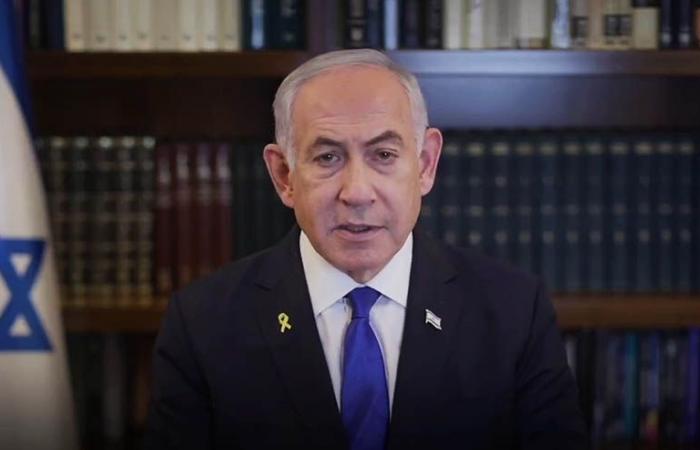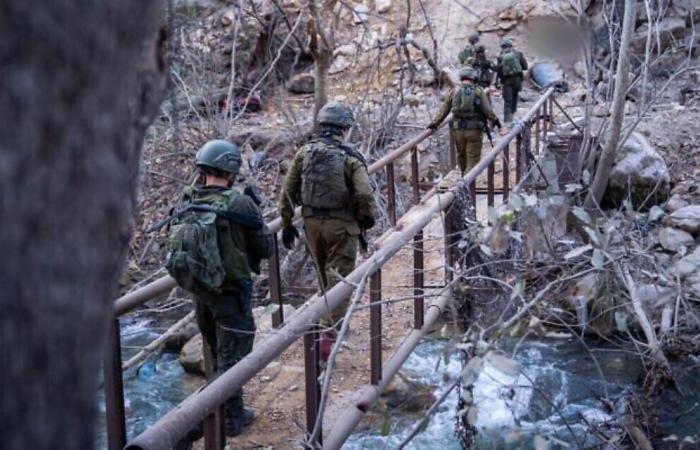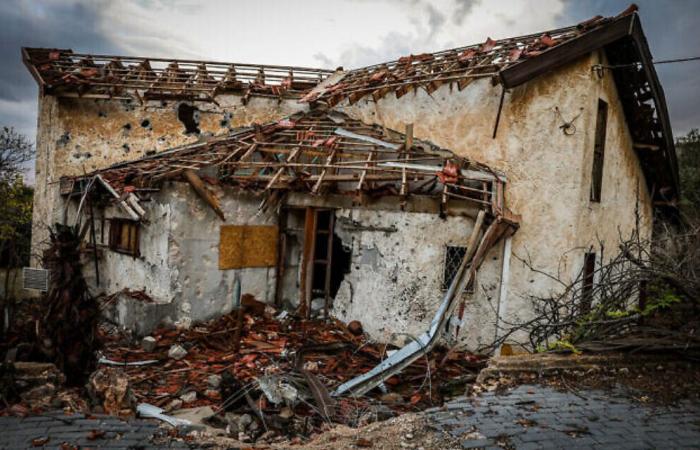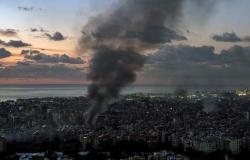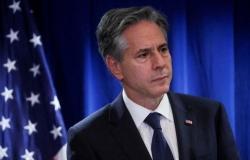Israeli Prime Minister Benjamin Netanyahu announced Tuesday that his security cabinet would adopt “in the evening” a ceasefire in the war against the Lebanese Shiite terrorist group Hezbollah, which should put an end to more than one year of cross-border hostilities and two months of open war in Lebanon.
The United States, the European Union (EU), the United Nations and the G7 have all pushed for a cessation of hostilities between Israel and the Iranian-backed Lebanese Shiite terrorist group.
Israel’s security cabinet will adopt a ceasefire in Lebanon “tonight,” Netanyahu announced.
Receive our daily edition for free by email so you don’t miss the best news. Free registration!
However, he warned that his country “will respond” if Hezbollah violates the truce and will maintain “total” freedom of action in Lebanon.
A truce in Lebanon will allow Israel to “focus on the Iranian threat,” he said.
Opposition leader Yair Lapid lashed out at the government over Lebanon’s ceasefire deal, accusing it of being “dragged into the deal by Hezbollah” after more than a year of fighting.
“Meanwhile, northern communities have been destroyed, residents’ lives have been destroyed, the military has been worn down while you advance evasion laws,” Lapid said in a statement, referring to the legislation aimed at exempting ultra-Orthodox men from compulsory military service.
Lapid says the elimination of Hezbollah leader Hassan Nasrallah and the air campaign against Hezbollah’s stronghold in the southern suburbs of Beirut are “operational successes worthy of all praise, but the October 7 government failed to realize the transformed into a diplomatic victory.”
“Under Netanyahu’s leadership, the greatest disaster in our history has occurred, no deal with Hezbollah will erase the abandonments. No statement to the press will change the story,” Lapid added.
He also called on Israel to quickly reach a hostage deal that would end fighting with Hamas in Gaza.
Benjamin Netanyahu was speaking at the end of a day marked by the most violent Israeli raids on Beirut, since Israel launched a bombing campaign targeting pro-Iran Hezbollah in the neighboring country on September 23, then began there on September 30 ground operations in the south.
Troops from the Air Force’s Shaldag unit operating on the Litani River in the eastern sector of southern Lebanon, in an image released on November 26, 2024. (Israel Defense Forces)
A ceasefire should also help end the conflict against the Palestinian terrorist group Hamas in Gaza, US Secretary of State Antony Blinken said before the agreement was announced.
The G7 foreign ministers called on Tuesday for an “immediate ceasefire”, while the head of EU diplomacy, Josep Borrell, declared that the Israeli government had “no more excuses”. » to refuse it.
According to the American news site Axios, the agreement is based on an American project providing for a 60-day truce during which Hezbollah and the Israeli army would withdraw from southern Lebanon to allow the Lebanese army to deploy there.
It includes the establishment of an international committee to monitor its implementation, Axios added, specifying that the United States would have given assurances of its support for Israeli military action in the event of hostile acts by Hezbollah.
Israeli Defense Minister Israel Katz warned on Tuesday that his country would act “strongly” if an agreement was violated.
The international mediation was based on UN Security Council Resolution 1701, which ended the previous war between Israel and Hezbollah in 2006, and stipulates that only the Lebanese army and peacekeepers can be deployed to the southern border of Lebanon.
Netanyahu will, however, have to convince his far-right allies: on Monday, his Minister of National Security, Itamar Ben Gvir, estimated that a ceasefire would be “a big mistake”.
Before giving the green light, Israel increased its aerial bombardments on Tuesday in the very center of the Lebanese capital – where at least ten deaths were reported according to the Lebanese authorities who do not distinguish between civilians and terrorists – and its southern suburbs, Hezbollah stronghold, after calls to evacuate.
IDF soldiers cross the Litani River in southeastern Lebanon, in an image made available and released to the public on November 26, 2024. (Israeli Army)
A Hezbollah MP, Amin Cherri, accused Israel of wanting “revenge on the Lebanese” before a ceasefire.
The Israeli army reported on Sunday evening that 250 projectiles were fired into Israel on Sunday. On Tuesday afternoon, more than 20 projectiles were fired from Lebanon. She also reported strikes in southern Lebanon and a ground operation in “the Litani River region”, to the north of which Israel says it wants to repel Hezbollah.
Since October 8, 2023, Hezbollah has attacked Israeli communities and military posts along the border daily with rockets, drones, anti-tank missiles and other means, claiming it is doing so to support Gaza as part of of the ongoing war – war triggered by the pogrom perpetrated by the Palestinian terrorist group Hamas on October 7, 2023 in southern Israel.
After coming under almost daily fire from Hezbollah since October 8, 2023 – preventing more than 60,000 Israelis evacuated since from returning home, Israel launched a campaign of massive airstrikes on September 23 on Hezbollah strongholds in across Lebanon, and since September 30 Israel has been carrying out a ground operation in the south of the country, expanded this week to the coastal areas of southwest.
Over the past year, attacks on northern Israel have resulted in the deaths of 44 Israeli civilians. In addition, 72 Israeli army soldiers and reservists lost their lives during cross-border clashes and the ground operation launched in southern Lebanon at the end of September.
Two soldiers were killed in a drone attack from Iraq. P several others also took place from Syria, without any injuries being reported.
The IDF also estimates that nearly 3,000 Hezbollah terrorists were eliminated during the conflict. Around 100 members of other terrorist groups were also reported killed in Lebanon.
Faced with the escalation, Hezbollah seems to have stopped naming its eliminated elements.
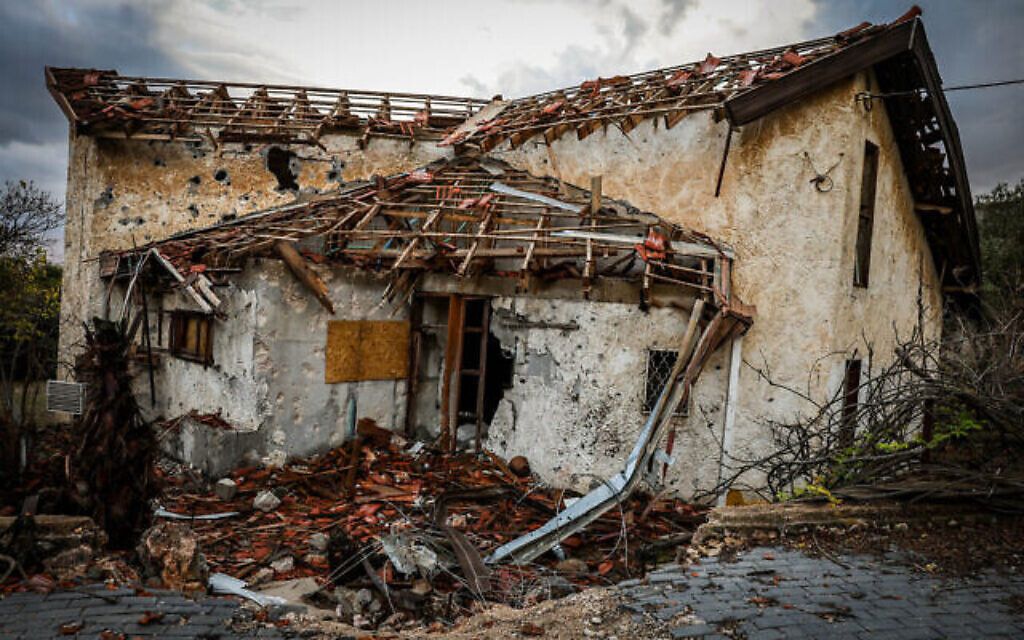
View of a house hit by missiles fired by Hezbollah from Lebanon in Metoula, on the Israeli border with Lebanon, November 20, 2024. (David Cohen/Flash90)
Before the ceasefire was announced, residents of northern Israel interviewed by AFP said they were opposed to it: “in my opinion, it would be a serious mistake until Hezbollah has been completely eliminated “, declared Maryam Younnes, a 29-year-old student.
On Tuesday evening, demonstrators gathered in front of the Defense Ministry in Tel Aviv to protest against a deal.
The IDF continues its operations in the Gaza Strip, where at least twenty-two deaths were reported Tuesday, according to Civil Defense led by the Palestinian terrorist group Hamas, including eleven in a school housing displaced people in the north.
At the start of winter, thousands of displaced people are trying, with paltry means, to protect themselves from the rain and the cold.
Winter is going to be “horrible”, warned Louise Wateridge, a spokesperson for the (very) controversial United Nations Relief and Works Agency for Palestine Refugees in the Near East (UNRWA), as Gazans “have not had the most basic things for thirteen months: neither food, nor water, nor shelter”.
The war in Gaza broke out when some 6,000 Gazans including 3,800 terrorists led by Hamas stormed southern Israel on October 7, 2023, killed more than 1,200 people, mostly civilians, kidnapped 251 hostages from all ages, and committed numerous atrocities and using sexual violence as a weapon on a large scale.
In response to this pogrom, the deadliest in the country’s history and the worst carried out against Jews since the Holocaust, Israel, which vowed to annihilate Hamas and free the hostages, launched an air operation followed by a ground incursion into the Gaza Strip, which began on October 27.
More than 44,000 people have died in Gaza since the start of the war, according to the Hamas Ministry of Health. The figures released by the terrorist group are unverifiable, and they reportedly include its own terrorists, killed in Israel and Gaza, and civilians killed by the hundreds of rockets fired by the terrorist groups that fall inside the Gaza Strip.
Israel says it has killed 18,000 terrorists in combat. The IDF also claims to have killed a thousand terrorists inside the country on October 7.

